A Girlhoood in the Bee Yard
I hopped out of my dad’s truck. A stifling dread washed over me as I stepped into a vibrating cloud of honey bees. I knew it was an irrational fear—the bees were much too busy gathering and making liquid gold to be bothered by my presence. The possibility of a honey bee finding the rip in my jeans, or getting caught between my finger and a hive box, was the reason for my dread.
I forced a calm front, flinching inside as the buzzing volume swelled and enveloped us. Meanwhile, I asked myself why I asked to join my dad on another one of his bee trips.
Why did I race from the house to hop in when I heard the diesel engine roar to life after supper? Why did my ears perk up when I heard my dad tell my mom he was going to be getting up early to move some hives? Why did I keep insisting on joining him when, although only occasionally, my fears were realized?
Being around bees is like dealing with horses. It requires a quiet, calm spirit and attentive, fluid movements. Because beekeeping can also be a business, speed, efficiency, and productivity are also key. The two can be a unique balance of energy and tranquility. A balance that’s easy to get wrong.
One day my dad and I were moving some bees to a new location. In the groove of getting the job done, I became a bit over confident about my strength and instead of leaving it for my dad, I lifted a heavy box of bees off the truck. It was too heavy and, unable to follow through with a soft, mindful movement, I set it down roughly on the pallet. Alarmed, the bees boiled out of the box and, suddenly, I was wearing bees—and being stung through the material of my jeans. I knew flailing up and down would make the situation worse, so I brushed them off as softly and calmly as I could. Their stingers penetrated through my clothes and when I knelt down, one found its way into my skin.
Pa resumed the heavy lifting while I moved onto the next task and willed the pain to subside. My next job was to apply a bee parasite medication. The bees were not having it. My previous antics angered them and the smell of the medication on my ungloved hands and arms irritated them even more. I was stung again and again.
We quit early that day. As soon as I started sniffling in pain and frustration, pa sent me into the safety of the truck. On the drive home, I flicked bees off me. I felt something wiggling in my boot—and found two angry bees trying to sting me. Revengefully, I squished them, cringing at myself.
Pa tried to make conversation as I attempted to stop crying.
“I don’t know what’s wrong with them today,” he said.
I sniffled in response knowing it wasn’t the bees’ fault.
Pa continued, “So, you’re cured, right?”
I knew what he meant: cured from wanting to keep beekeeping. I couldn’t answer him because I wasn’t so sure I did want to keep helping him.
For the next two days, I could barely move my fingers. My hands were so thick and swollen I couldn’t make a fist, grip a steering wheel, or write. One hand was twice the size as normal and swelled all the way to my elbow. Horrified at my fat, itchy forearms, my high school classmates gasped, “What happened?”
“I am a beekeeper’s daughter!” I answered proudly.
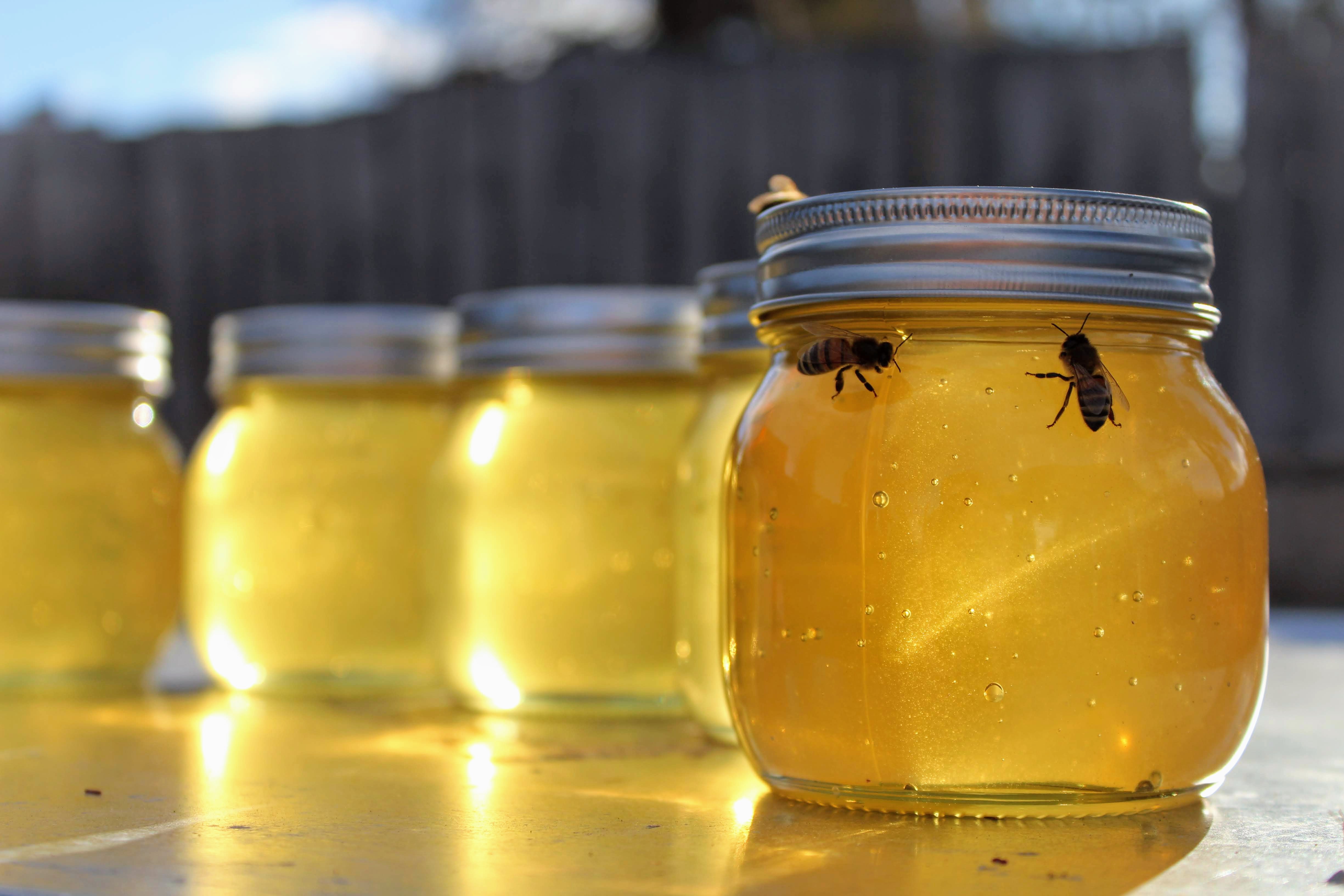
Catching the Bee Fever
Looking back and wondering why I had continued to peer into masses of industrious bees, feigning fearlessness as I listened to my dad explain the wonders of the bee world, I now realize I had been on a quest. Honey bees were creatures of mystery and intrigue to me. My dad loved them—even when he came home tired and hurting as much as I had that day, proclaiming to hate them with colourful Dutch descriptors. I wanted to understand why he loved them even though they seemed to be such terrors. And I could only really understand if I experienced what he was experiencing.
At present, I can barely remember the disjointed feeling of my body approaching the hives while my inner self inched backwards to the safety of the truck.
I grew up surrounded by fields, forests, and fresh air. My dad was a hobby beekeeper from the time I started kindergarten, and owned a cut flower greenhouse operation before I was even born. From a young age, my siblings and I helped in the greenhouses, but assisting in the bees was a voluntary activity.
My dad never pushed me; I had to want to help. I didn’t become intensely interested in bees until I was in my teens. Only when he was sure I was really into it did he come into the greenhouse after lunch in the summer and beckon me out from picking flowers to go help him at a bee yard. Nothing was more fulfilling than coming home tired, sweaty and sticky after an afternoon of being completely immersed in nature.
As a result, I caught the fever. “Bee fever” is a well-known phenomenon in the beekeeping community—a term used to describe the overwhelming passion for all things honey bees that seems to infect us sweet-loving humans.
It’s a bizarre thing to catch bee fever. It’s almost as odd as falling in love with someone—except you fall in love with an insect and her consistent inconsistencies. I suppose I couldn’t help but fall in love with the rich history, complex science, and charming nature of the honey bee.
Although I cannot pinpoint the exact moment bee fever caught hold of my nature-loving heart, it was thanks to a van of grinning Jamaicans in the summer of 2014 that I suddenly realized it had happened.
I was struggling with a heavy hive, sweat running down my body and escapee strands of hair sticking to my freckles. A rickety van pulled me out of the trance that the bright, sweet smelling orchard had put me in. Although it was midafternoon and they still had half a day’s worth of hot work ahead of them, their faces glowed with health and good humor. The van jerked to a halt a safe distance away from the buzzing cloud and they hollered as I waved at them, “Any honey?”
Their faces split into contagious grins when I answered, “Not yet.” And they asked, “Girl, you not scared?”
That’s when it hit me. No, I actually wasn’t scared at all. I was working in absolute comfort, my mind free and thoughts wandering. The anxiety that used to wash over me as soon as I stepped from the truck was now a distant, foreign feeling.
That night, when I told my dad that I realized I’d gotten over my fear, he wasn’t surprised to hear that I’d been scared in the first place. He told me that while your body will build up an immunity to the venom over the season, you never get used to the sudden fiery pain of a bee sting. His simple explanation was the time-old saying—it’s mind over matter.
A lot of things in life sting, but a positive mindset is a powerful antidote.
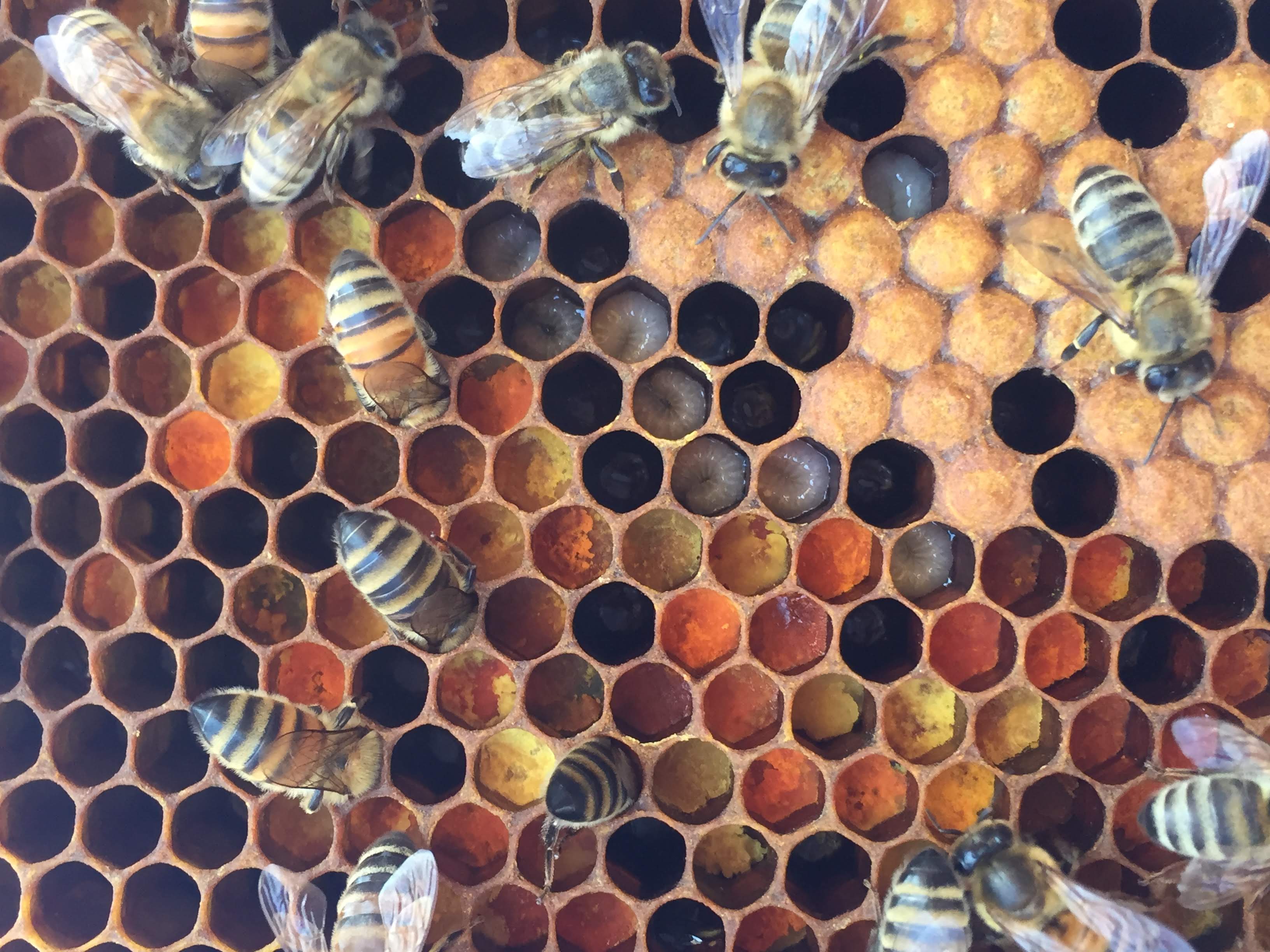
Whether bee fever had replaced the fear in 2014, or in previous years—during one of the countless early spring, frog-song mornings while moving beehives into bridal-white cherry orchards, on a summer afternoon sweating over honey-heavy hives in the thick, strawberry-sweet air, or during cool cricket evenings breathing freshly cut grass and billowing pine smoke from the bee smoker—I do not know. I just know I had it bad.
Scents always evoke such strong feelings and memories for me, and there are many fragrances assooiated with the honey bee. The sweet smell of warm wax and honey, the light perfume from blooming trees, pungent bee smoker smoke, and a dozen other outdoor smells meld into a distinct scent that makes me feel intensely happy. I miss that familiar smell during the winter months. Opening the first hive in the spring and relishing the warm, fragrant air that wafts up from the alive and happy bee cluster inside is a joy. Spending days sun soaked and sticky is a summer trademark and something that always transports me back to my girlhood when my dad and I spent hours together with the bees.
As the summer days of my late teens wore on and the honey flowed in from flowery places, we’d pause every once in a while to soak in our surroundings and sneak a taste of the fresh, bright honey that coated our fingers and tools.
One afternoon, in between opening hives and pulling out buzzing frames of bees, my dad came beside me and said, “Yours…late birthday present.” In his hands lay a shiny new hive tool and as he replaced his tried, proven and propolis-caked tool in my hands with the new one, I felt like I had been accepted into beekeeperdom. Bees flew around us with an infectious, sun-infused energy. And I tested the weight of the clean, sharp tool in my hands like a grandfather might a new knife, pondering how far I’d come.
The last few summers that I lived with with my family, my dad and I would tend to the bees all day and read about bees at night. Boxes appeared on the front porch full of books.
We drank in the words of Miller, Doolittle, Langstroth, and Brother Adam—masters of all walks of life and literal gold mines of bee knowledge. The intricacies of the bee world were opened up to me through hands-on experience with my father in the daylight, and the penned words of doctors, ministers, housewives, and scientists in the night hours. I lived the happy lives of many long-gone beekeepers through the black and white pages, and my sleep was infiltrated with wings carrying loads of pollen and nectar.
Beekeeping became more than a hobby or job, business or endeavor. To me—and to many of the bee-crazy writers I read—keeping bees is a lifestyle. I’ve realized that bees are a love and beekeeping is a wonderful, high-quality way to spend precious time. I had something in common with the people whose lives I was entranced by. Brother Adam said it best:
“There is something about bees that in all ages has taken men captive. Their extraordinary sense of order and precision, their ability to adapt themselves to anything and everything, their amazing versatility, these and many other characteristics provide an inexhaustible source of interest and delight.”
I was a captive. I still am….

Interacting with Nature’s confectioners is intoxicating. Almost addictive. When it’s wintertime and I am scrolling through the years’ photos, any photo of beekeeping causes a pulling sensation in my gut, drawing me outdoors and making me want to get my hands stained with propolis again.
Beekeeping is hot, heavy, and sticky work—but it is a delightful blend of working with nature in nature, requiring an active body as well as mind. It’s a never-ending cycle of challenges, learning, building, and research, followed by testing, doing, and trying. Whatever you learn in one season is carried over to the next.
When I was in university, I’d crunch through the snow in the dark to the warm, dimly lit barn for a homework break and find my dad covered in sawdust, surrounded by beekeeping-related projects, nailing, sawing, measuring, figuring, and calculating. During the summer, he’d use his creations and make alterations to the building plans, constantly dreaming up better ways of doing things. Honey bees are masters of order and precision, and beekeeping breeds an inventive and creative person. The smallest biological fact affects multiple aspects of beekeeping in a big way, and the tiniest tweak can result in either huge success or failure.
The weight of this truth was impressed on me when I moved away from home and bee fever followed.
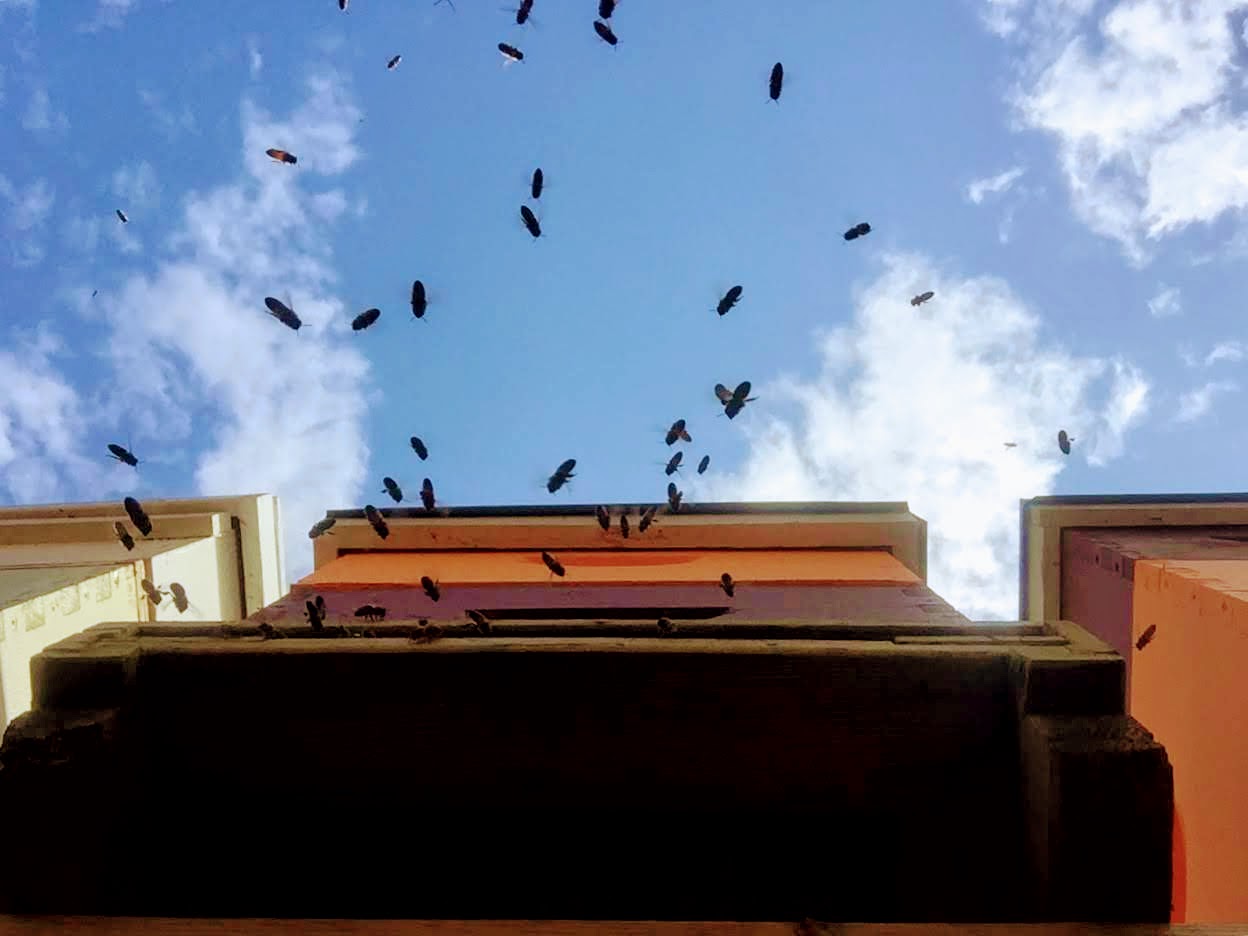
Becoming a Beekeeper
I made the decision to buy some bees for myself. And the same spring I moved across the country, I purchased four small hives with my now husband. Witnessing him catch bee fever the first time he found the gorgeous queen bee was a real pleasure.
There is only one queen bee in each hive—the only fertile insect in a society of females. They are slender and beautiful, with a long abdomen of brown and gold, or sometimes almost black with deep maroon stripes. Her legs are long and shiny, unlike the functional hairy legs of the worker bees. She is constantly surrounded by a ring of doting nurse bees. Despite the differences between her and her bees, she is quick and can be hard to find between the constant activity on a hive frame. I could feel the awe and excitement vibrating off of him in the same way the buzzing reverberated from our hive. It was infectious.
Beekeeping in British Columbia’s soggy cedar forested Fraser Valley was very different than in the heat and cold extremes of Southwestern Ontario. I didn’t know when spring would come, when the honey flow would happen, which flowers would provide, how the wildfire smoke would affect the bees, or how to deal with the wet climate.
The first year I was a beekeeper, I harvested a small amount of excess honey and we enjoyed every precious, glistening drop. Unfortunately, at the end of that first summer, wasps came by the hundreds. We watched helplessly as they plundered our small apiary, leaving it a ghost town before the first snow flew.
I knew keeping bees could be disheartening. I was better prepared to lose some bees over the winter and be disappointed in the spring than to have no hives at all to dream about during the winter. Although I was gutted, I knew beekeeping was about resilience, so I tried again the following spring.
The next season glowed hot and thick with blossoms. Late that summer, I opened a hive, anticipating the warm, sweet smell of a healthy colony and being greeted by a hefty mass of buzzing brown and yellow bees. Instead, a cloud of wasps emerged. It had only been a few days since I last checked them, but the hive was ransacked. A sad cluster of bees buzzed in a corner. I quickly checked the other eight hives we had built. Even the strongest, most promising colonies had wasps coming and going as they pleased, carrying the body parts of bees with them.
The wasp attack had pulled me from a honey high to cold reality, and it lit an angry fire in my fever. In an attempt to rescue our bees, we moved all our hives to the other side of the valley to escape the wasps.
Crushed, angry and sickened as my bees and their hours of hard labor were carried off into oblivion, leaving stark silence where there once was a happy, busy bustle, I couldn’t help but cry helplessly.
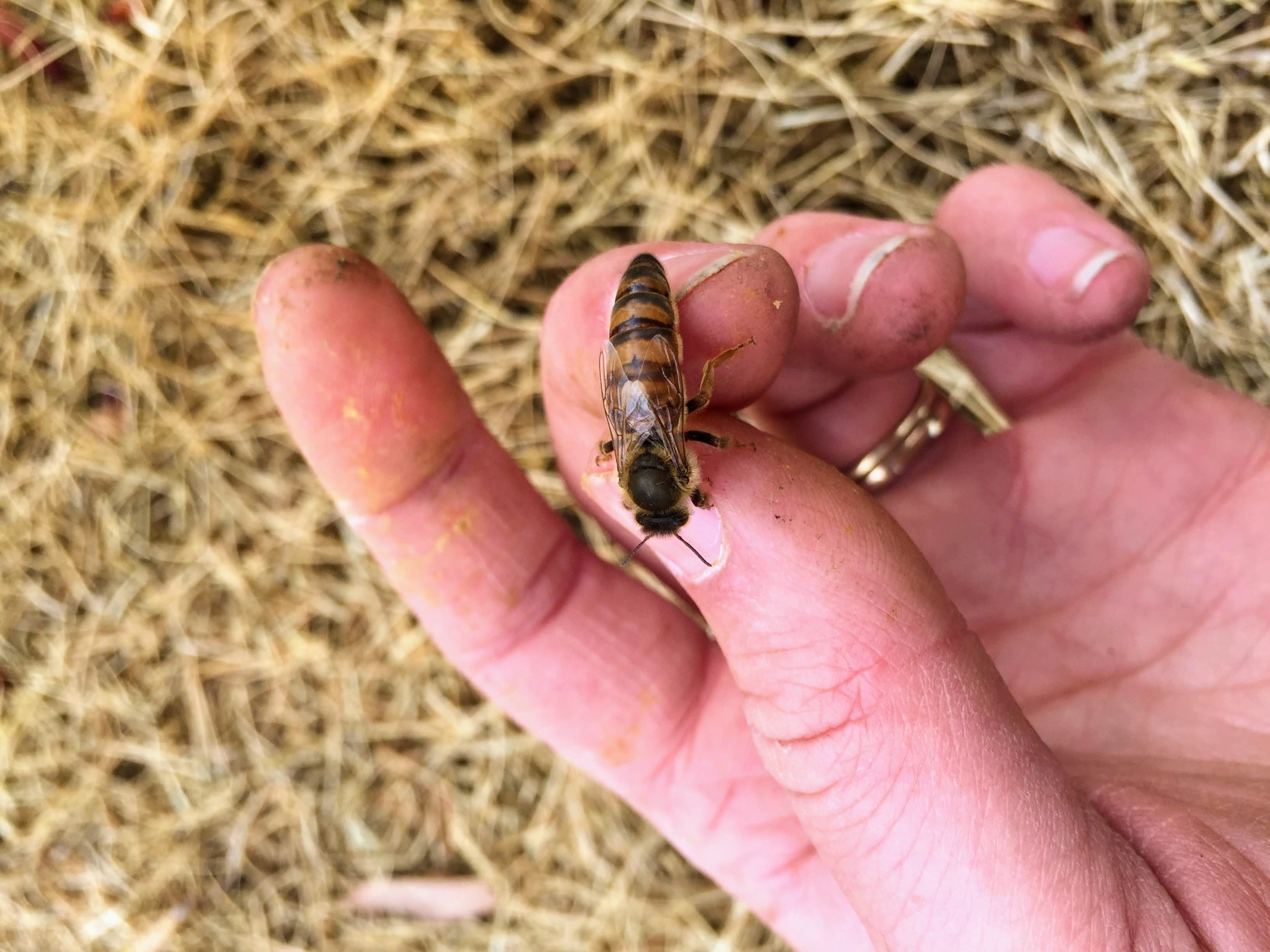
We entered the winter with eight hives. My dreams for another season of sunshine, sweet smells, and loads of bees hung by a thread. I finally knew how my dad felt every winter of my childhood, when all he could do was wait, read, hope, and fill the little barn with sawdust.
Spring arrived. Nervous—for a much different reason than being stung—I tilted open a hive and peeked inside. The well of joy and wave of relief upon hearing the bees buzzing vigorously at the cold air wafting in past my face was immense. A thrill ran through me to hear, see, and smell them again. The fever was rekindled and I knew I was a powerless, willing captive of the honey bee.
Having moved again into the more familiar climate of the southern interior of British Columbia, I’m entering the winter of this year with 25 hives—brimming with bees—and the anxious anticipation is no less.
I will never again ask myself why—oh why I wanted to go with my dad on his beekeeping excursions. Even though thousands of kilometers separate our bee ventures, he is still my teacher. We exchange photos of our hives and he gives me advice on tackling the secrets of the bees I’ve yet to master. Inevitably, we end up chatting bees every time I call home, when he isn’t away at a bee yard, elbow deep in a hive.
And just like my dad, I still don’t wear gloves. I like being able to feel the energy and heat from the bees in their hives, being the industrious, beautiful, enchanting creatures they are.
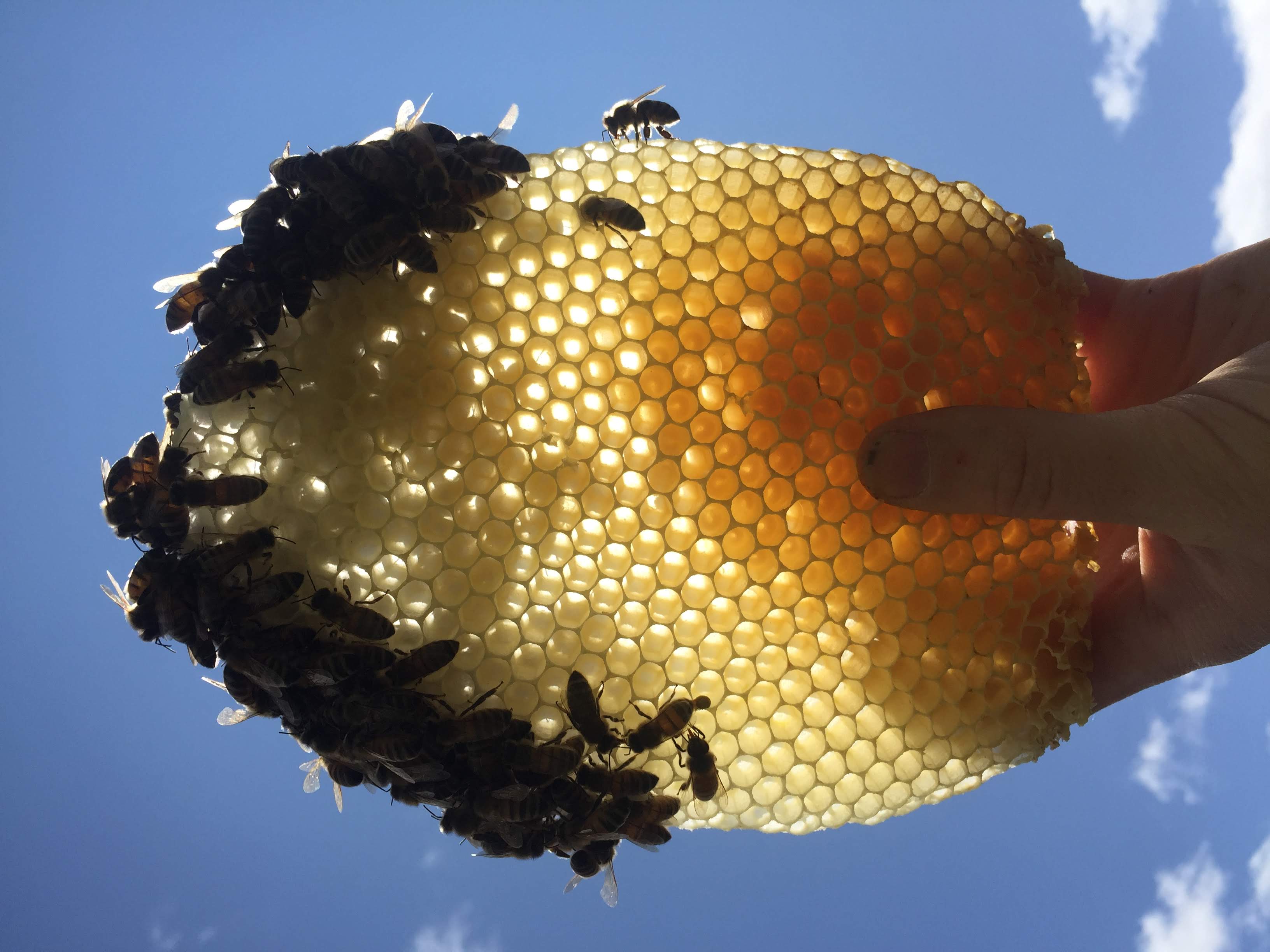




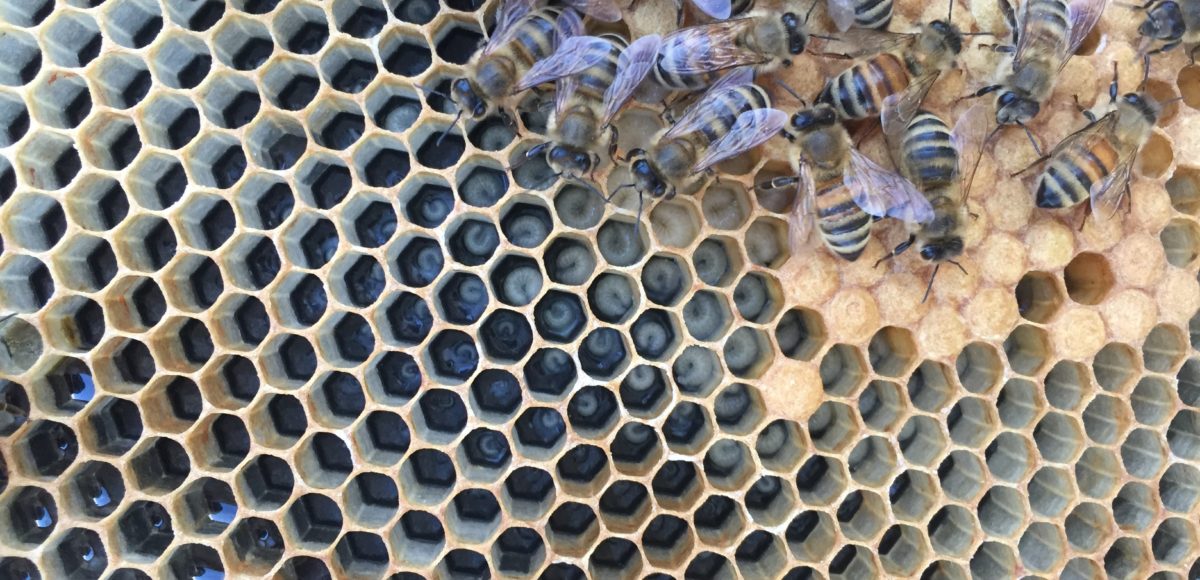



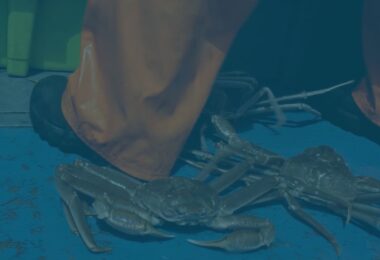

ERIKA Schaap | March 3, 2020
|
One very proud mother just read this article which our dear sylvia wrote. Her dad Braves the bees and, being afraid of bees myself, I sell the honey and other byproducts from his labours among the beehives. After reading her article I feel like I should try beekeeping along with hubby, but for now I’m kept busy as a bee known in many stores as “the honey lady” 😊
I hope this article will inspire WOULD-be beekeepers because we need more beekeepers and being one is so rewarding!
Hayli Nicole | March 15, 2020
|
Hi Erika! We LOVE that you’re the honey lady. You sure did raise one of the sweetest and most resilient souls we’ve had the pleasure of working with! I’ve personally been wanting to get into beekeeping for many years and was thrilled when this story landed on my desk. I look at bees with greater compassion and awe and I look forward to the day I’m able to apprentice and learn the art, science, and zen of being a beekeeper!